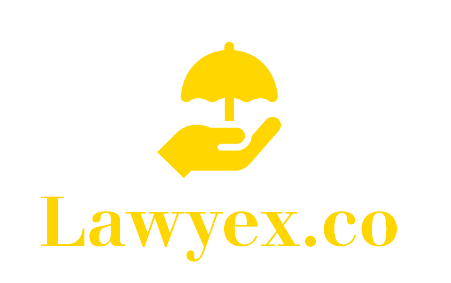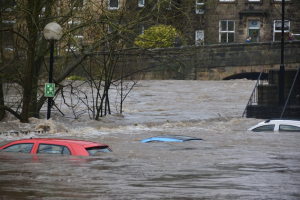Insurance policies are an essential part of every person’s life. Whether you’re dealing with a personal or commercial insurance policy, it’s important that you understand the differences between the two. The following information will help you make informed decisions about your coverage options so that your financial future is secure.
Personal and commercial insurance policies
Personal insurance policies are designed to protect the individual and their family members. They can be used to cover losses such as medical expenses, home damages and losses due to theft or fire. Commercial insurance policies provide coverage for business owners’ assets in case of loss or damages.
Both types of insurance policies provide coverage for losses that can be difficult to afford, but understanding the differences between personal and commercial policies is important so you can choose the right type for you.
Regardless of the type of policy you have, all insurance policies share some basic characteristics.
Regardless of the type of policy you have, all insurance policies share some basic characteristics.
- They all have a policy number. This is how your insurer identifies your policy and keeps track of it. If you’re insured by more than one company (for example, both your car and home are insured), each company will have its own policy number for that particular kind of coverage.
- They all have a policy period: The date from which your coverage begins until it expires or terminates on that specified date in the future–for example, one year from today’s date until December 31st 2023 at midnight EST! In other words: “This is when our contract ends.”
- All policies also require an individual named as “the policyholder” who pays premiums (or fees) in exchange for protection against financial loss due to injury or damage caused by others’ negligence while driving their vehicles on public roads where pedestrians may walk freely without fear of being struck by speeding vehicles driven illegally by drunk drivers who speed down streets without regard for safety precautions like sidewalks or crosswalks…
Why it’s important to have the right coverage
You’ve probably heard the saying “an ounce of prevention is worth a pound of cure.” It’s true in life and it’s especially true when it comes to insurance.
While you may not think about your coverage every day, having the right amount of protection can mean the difference between financial stability and financial ruin. If something unexpected happens, like an accident or illness, having enough money to recover from those events can help you avoid serious financial problems down the road. That’s why it’s important to have the right amount of coverage for yourself and your family members–not just because it feels good knowing that if something goes wrong, someone will be there for us (or at least pay our hospital bills), but also because we need this protection against unforeseen circumstances that could come up at any time during our lifetime
Personal insurance policies are designed to protect the individual and their family members.
Personal insurance policies are designed to protect the individual and their family members. They’re meant to safeguard you from loss or damages in a variety of situations, including:
- Homeowners insurance covers damage to your home and its contents when things like fire, weather damage or theft occur. It also covers liability if someone is injured on your property–or if they sue you for injuries sustained there–and allows for legal defense costs should such an incident arise.
- Auto insurance covers any damages incurred by drivers while operating their vehicles (or those who ride as passengers). It includes liability protection against injuries suffered by others due to negligence on your part while behind the wheel; it also covers medical expenses related directly back up against injuries sustained during an accident involving one’s own vehicle(s).
Types of personal insurance policies
There are several types of personal insurance policies. These include:
- Homeowners. This covers the cost to repair or rebuild your home in case of fire or other disasters such as windstorms, floods and earthquakes. It also pays for any damage caused by vandalism or theft (but not robbery).
- Auto. This provides liability coverage if you’re involved in an accident that injures someone else or damages their property; fire and theft protection for your car; medical payments for injuries sustained by passengers riding in your vehicle; and uninsured/underinsured motorist coverage if another driver doesn’t have enough insurance to pay for all his/her damages after an accident involving you both.* Life Insurance Policies protect against premature death by paying off debts owed on loans taken out while alive–like mortgages–and providing money for dependents’ living expenses should they become widowed early due to tragedy like cancer diagnoses that require long-term treatment regimens costing tens of thousands annually per person.
Coverage options and benefits
If you’re looking for a policy that covers all of your bases and gives you total peace of mind, commercial insurance is the way to go. But if you want to keep things simple, personal insurance might be more suitable for your needs.
Personal policies are designed for individuals who own property or live in homes that may not be covered by standard homeowner’s policies. They also provide coverage for vehicles used primarily for pleasure–like motorcycles and jet skis–and medical expenses incurred while traveling abroad (up to a certain limit). Personal policies typically include:
- Medical payments coverage that pays regardless of who caused an accident or injury
- Rental reimbursement if damage occurs while using someone else’s car during an emergency trip
- Traveler’s accident protection which provides up-to-date information on emergency services worldwide
Is it important to have personal insurance?
Yes, it is important to have personal insurance. Personal insurance protects you and your family in the event of an accident or death by covering medical expenses, funeral costs and property damage. It can also cover items such as jewelry and other valuables that may be lost in a fire or flood.
It’s important for people who own their own businesses or who work for other companies on a freelance basis to have commercial policies because those businesses could suffer financial losses if something were to happen to the owner/employee while they were out on business trips or working late at night at home (e.g., someone breaks into their house).
Commercial insurance policies are designed to protect a business owner’s assets from loss or damages.
Commercial insurance policies are designed to protect a business owner’s assets from loss or damages. The types of assets that can be protected include buildings, inventory, equipment and other property.
If you’re thinking about starting your own company and need to get some commercial insurance in place before opening your doors for business, there are several things you should know about the different kinds of coverage available:
Types of commercial insurance policies
Commercial insurance policies are designed to protect your business and its assets. While they can be similar to personal policies, there are some important differences in coverage that you’ll want to consider before buying one. Here’s a rundown of some of the most common commercial insurance policies:
- Property Insurance – This type of policy helps cover the cost of replacing or repairing damaged property due to fire or other perils (such as theft). It can also provide protection against additional losses caused by natural disasters like hurricanes and earthquakes.
- Liability Insurance – This type of policy protects you from paying out-of-pocket if someone sues you over an accident involving their injuries or property damage. It covers things like medical bills and legal fees related to lawsuits filed against your company by third parties such as customers who have been harmed by defective products manufactured by your company; employees who were injured while working at home office facilities; contractors hired for construction projects on company premises; customers injured while shopping at retail stores managed by franchisees etc.,
Advantages of commercial insurance
Commercial insurance policies offer a host of advantages over personal policies. While you may be able to find some coverage for your business under a personal policy, it’s more likely that commercial insurance will provide better protection and broader benefits.
Commercial policies protect your assets from theft and damage, including equipment, inventory and customer property damage. They also cover legal fees if you are sued by an injured party or other parties who believe they were harmed by the actions of one of your employees or contractors (this is called “liability”). In addition, many commercial policies offer additional coverage for employee health care benefits or workers’ compensation in case an employee gets hurt while working on site at your business premises.
Commercial insurance policies and personal insurance policies provide different levels of protection for different parties, but they share many similarities.
Commercial and personal insurance policies are designed to protect you from financial loss. Both types of policies can help you recover from a disaster, such as a fire or flood. They also provide protection for your assets, such as buildings and inventory.
Both types of policies have similar terms and conditions: they require a deductible before coverage kicks in; they offer similar levels of coverage (e.g., $10 million per occurrence); they have similar premiums based on the value of the property being insured; etcetera.
Key differences
Commercial insurance policies are designed to protect a business owner’s assets from loss or damages, whereas personal insurance policies are intended to protect the individual and their family members. Commercial policies tend to be more comprehensive than personal ones because they’re meant to cover more situations and are often written with different types of risks in mind–the most common being liability coverage for injuries sustained on the job site by employees or contractors, property damage caused by fire or storm damage, crime-related losses like vandalism that affects company computers/equipment etc., professional liability insurance (for lawyers) which helps protect against lawsuits filed by clients who feel they’ve been wronged by their lawyer’s advice etc.
On the other hand, personal policies are usually more tailored to the individual and may include coverage for medical expenses, legal fees etc. In addition to this, they’re also used when you’re traveling abroad (to a country where your employer doesn’t offer health care coverage) or if you need insurance in case of damage to your house caused by natural disasters like fires/floods.
Premiums and deductibles
When it comes to premiums, the cost of insurance is based on your risk profile. For example, if you have a good driving record and live in an area with low crime rates, then you’ll usually pay less than someone who has poor credit and lives in an urban area.
The deductible is another way your insurer determines how much money they need from you before paying out claims. This amount varies by state but typically ranges between $1,000 and $5,000. If someone has a high deductible policy–say $5,000–then they’d have to pay for most medical bills out-of-pocket until their total reached five grand before any money would come from their insurance company (unless there was an exception).
Policy limits and exclusions
Policy limits and exclusions are two of the most important aspects of any insurance policy. They’re also two of the most misunderstood. Before you sign on the dotted line, it’s important to know how these terms work and what they mean for your personal finances.
In order to understand policy limits, we need to first talk about deductibles–the amount you pay before an insurance company starts paying out claims on behalf of their policyholders. For example: if you have a $1 million personal liability umbrella policy (i.e., all your assets combined) with a $50k deductible, then any claim made against one person or entity would have to exceed $50k before any money from this particular source is paid out by your insurer–even though there may be other policies providing coverage elsewhere within that same umbrella policy!
Now let’s look at exclusions: when comparing commercial vs personal policies, one thing becomes immediately clear: commercial policies tend not cover many items that are standard when insuring homes or cars; this includes things like jewelry or collectibles unless specifically noted otherwise during underwriting (which means getting approved). Another notable exclusion often found within commercial lines involves lawsuits filed against businesses; because there aren’t many cases where people sue themselves directly into bankruptcy court (or worse), these types of risks aren’t typically included in homeowners’ coverage packages either because they don’t usually apply outside specific circumstances such as divorce scenarios where both spouses are involved together somehow through marriage contracts etcetera…
Selecting the right coverage
When it comes to insurance, there’s no such thing as too much coverage. But how do you know what type of policy is right for your needs?
A good place to start is by assessing your personal situation and reviewing the types of risks that might affect it. For example: Are you married with children or single? Do you own a home in an area prone to earthquakes or wildfires? Do you have valuable jewelry or artwork that could be stolen from your home? These are all factors that will help determine which types of insurance policies would be most beneficial for protecting yourself against loss or damage caused by various perils (things like fires, theft and natural disasters).
Assessing your insurance needs
The next step is to assess your insurance needs. This will allow you to determine what coverage options are available and how much coverage you need based on the value of your personal property, as well as other factors like age and occupation.
Be prepared to ask questions: You should always be ready when meeting with an agent so that they can help guide you through the process of assessing your needs, making sure that everything is covered before purchasing an insurance policy.
Shop around: After determining which companies offer coverage for items like computers or electronics, shop around for quotes from several different providers before choosing one–this will ensure that you get a fair price on whatever type of policy suits your needs best!
Researching insurance providers
The first step to finding the right insurance provider is researching the different providers to select the right one. There are many different providers to choose from, and some may seem more appealing than others. However, it’s not always about getting the cheapest policy; it’s also important to consider what kind of service you will receive if you have a claim.
When comparing policies from various providers, make sure that you’re comparing apples-to-apples (or oranges). For example: if two policies offer $10,000 in coverage–but one has higher deductibles than another–it’s best not just go with whichever one costs less! You might end up paying out of pocket for more medical bills than necessary because of this discrepancy in coverage levels and/or deductible amounts between them.
Additionally when shopping around for commercial insurance quotes online or over phone calls with agents at places such as Allstate Insurance Company who specialize in helping individuals find affordable personal lines like auto & homeowners insurance quotes at competitive prices based on specific needs such as age group etc., ask lots questions! Don’t hesitate calling back multiple times until satisfied with answers given before making final decisions.
Reviewing policy exclusions and limitations
When reviewing your policy exclusions and limitations, it’s important to note that most policies have a section that covers these items. This can be found in the “general provisions” section of your policy, which is usually located towards the end of your contract.
In many cases, there will be two types of limitations: those that apply to specific coverage areas (like property damage) and those that apply across all areas (such as personal injury). The former category might include things like earthquakes or floods; while the latter might include acts of war or terrorism.
Conclusion
Insurance is a complicated topic, but it’s one that every business owner needs to understand. You may be surprised at how many similarities there are between personal and commercial insurance policies. Regardless of whether you’re looking for coverage for yourself or your business, there are several factors that should be taken into account when choosing an insurance provider:



Average Rating